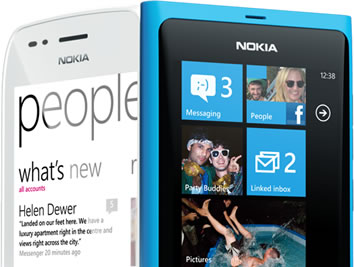One of Nokia's angry shareholders, Robert Chmielinski instructed law firm Robbins Geller Rudman and Dowd to file a class-action lawsuit (PDF) in a New York court against the firm, claiming it misled investors with promises that the partnership with Microsoft to sell Windows Phone 7 handsets would be more successful.
In the papework filed, Nokia is accused "talking up" the Lumia products' chances of turning around the company's fortunes. "The complaint alleges that during the Class Period, defendants told investors that Nokia's conversion to a Windows platform would halt its deteriorating position in the smartphone market. It did not," said lawyers representing Chmielinski.
The law firm argues that this became apparent on April 11, 2012, when Nokia disclosed that its first quarter performance would be worse than expected. Nokia expected its first quarter 2012 non-IFRS Devices & Services operating margin to fall by 3 percent, and projected first quarter 2012 Devices & Services net sales of €4.2 billion, a 40 percent drop on the previous year on year revenue generated in 2011,
They also made reference to the post US launch Lumia 900 data connectivity bug, which resulted in the struggling Finnish phone giant offering a $100 rebate to those who purchased them, as well as those yet to order them. What is potentially even more damaging however, is Chmielinski's claim that CEO Stephen Elop and CFO Timo Ihamuotila were aware of the problem before the phone was released on general sale.
Nokia issued a statement to the Inquirer in regards to the lawsuit. "Nokia has become aware of the filing of a securities class action complaint naming Nokia Corporation as a defendant, filed in the US District Court for the Southern District of New York on May 3, 2012, [we're] reviewing the allegations contained in the complaint and believe that they are without merit. Nokia will defend itself against the complaint."
Whilst announcing disappointing first quarter results, as well as its head of sales leaving, Elop did comment that the firm is still in the midst of transition, which is evident in the Q2 projections. Despite their efforts, Nokia's stock price continues to tumble alongside constantly reducing worldwide Symbian handset sales.
